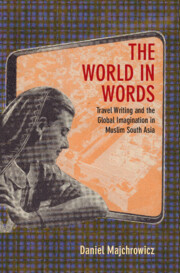6 - Border Crossings
Published online by Cambridge University Press: 28 February 2023
Summary
When colonial India was partitioned into the two sovereign nations of India and Pakistan in 1947, it occasioned the greatest mass migration in human history. The violence precipitated a refugee crisis of unimaginable proportions. Some ten million people were uprooted. Hundreds of thousands were killed, raped, or abducted. By 1948 about 50 percent of Lahore’s population consisted of refugees. In Delhi, it was 30 percent. This was only the beginning of a calamity whose consequences still reverberate. The upheaval was followed by confusion as states, societies, and individuals considered who and what would belong where. For those who stayed as well as those who left, Partition inaugurated a generations-long struggle to reconcile and rebuild. Society underwent profound changes, while an increasingly rigid barrier restricted the ability of people and ideas to flow between the two new countries. For Pakistani novelist Intizar Husain (1925–2016), the challenge of crossing this border was emotional as much as logistical:
The other countries of the world are one thing, and India is another. Trips abroad usually go something like this: tuk dekh liya, dil shad kiya, aur chal nikle [I looked around a bit, enjoyed myself, and went on my way]. A straightforward journey, a straightforward discussion. But for us [Pakistanis], a trip to India is a complex experience. On this journey, how many opposing emotions battle one another? We abhor India, and we are drawn to it. Just as [political] relations between India and Pakistan have their ups and downs, so too do our own contradictory emotional states oscillate in the same measure.
For those who experienced Partition, or who live in its aftermath, this is a journey unlike any other.
Urdu writers have long used the power of narrative and language to represent the complexities of Partition. Alongside oral histories, this literature has become an alternative archive for historians to access Partition’s emotional violence, implicitly suggesting that literature is perhaps “better able to cope with the challenges of writing about Partition than history [itself]. Historiographic engagement with this literature gave rise to what I call a historian’s “Partition canon,” which consists primarily of short stories and other fiction, typically by well-known authors, read in English translation from Urdu and Hindi.
- Type
- Chapter
- Information
- The World in WordsTravel Writing and the Global Imagination in Muslim South Asia, pp. 192 - 217Publisher: Cambridge University PressPrint publication year: 2023

